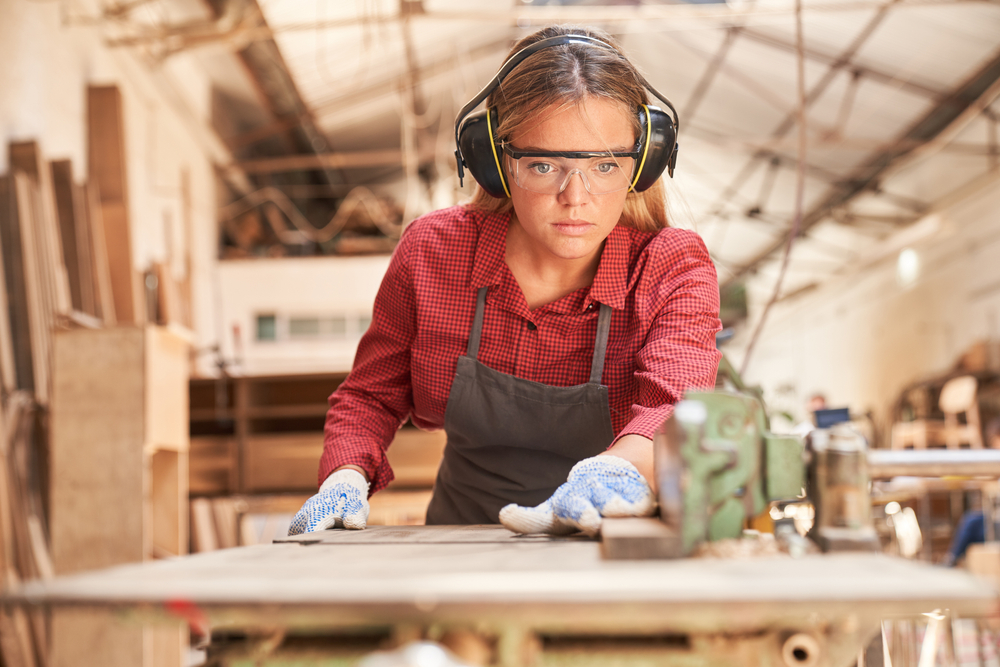
Hearing protection plays a critical role in protecting your ears against harmful noise levels, whether at work, concerts, or even during DIY projects at home. However, you could be left exposed to potential risks if any one of a number of possible factors interferes with your hearing protection’s effectiveness. In order to understand and successfully maximize the benefits of your ear protection, it’s essential to understand these issues.
Common reasons why hearing protection fails
Unexpected challenges will occur even when you follow best practices. You use your earmuffs diligently at work, use earplugs at concerts, and stay away from noisy situations whenever you can. Yet, certain variables can still interfere with your hearing protection’s effectiveness. Fortunately, by recognizing these common pitfalls, you can make informed adjustments to ensure your hearing is always well-protected.
1. Selecting the wrong hearing protection for the circumstance
Hearing protection isn’t one-size-fits-all, and selecting the wrong type for a given environment can reduce its effectiveness.
In general, hearing protection comes in two main categories:
- Earplugs: Little, flexible inserts that seat snugly inside the ear canal.
- Earmuffs: Larger devices that go over the entire ear, similar to headphones.
There is an ideal type for each situation:
- Settings with a constant noise threshold, including a factory floor or the cabin of an airliner, are the best times to utilize earplugs.
- In situations like a construction site where noise is periodic and you might need to frequently remove your hearing protection, earmuffs are the more effective choice.
If you’re in a quiet setting and need to momentarily remove your hearing protection, earmuffs are easier to deal with. However, earplugs, particularly disposable ones, can be easily misplaced, leaving you unprotected when noise levels rise again. Choosing the correct hearing protection for your needs is the first step toward safeguarding your hearing effectively.
2. Fit and function are impacted by anatomy
Some devices will fit better than others depending on the size and shape of the person’s ears. Standard earplugs and earmuffs are often designed for average dimensions, but your ear anatomy could require a more customized solution.
- Smaller ear canals: The noise-blocking capability of standard-sized earplugs may not be effective if smaller ear canals impede the formation of a proper seal.
- Larger ear structures: Earmuffs could be uncomfortable if your ears are bigger than average causing gaps in the seal.
Poorly fitting hearing protection can result in frustration and a temptation to abandon their use completely, putting your hearing at risk. If you spend significant time in noisy environments, consider investing in custom-molded earplugs or professionally fitted earmuffs. These tailored solutions provide optimal comfort and effectiveness, ensuring you remain protected in any situation.
3. Disregarding routine maintenance and replacement
Like any piece of equipment, hearing protection devices need maintenance to remain effective. Their ability to supply adequate protection can be jeopardized by things like incorrect cleaning, wear and tear, and failure to replace them when needed.
Here’s how to maintain your hearing protection:
- Clean Properly: Earplugs and earmuffs come into contact with earwax and other debris, which can build up over time. In order to safely and effectively clean your earplugs or earmuffs, consult the manufacturer-recommended cleaning instructions.
- Replace Cushions: The flexibility of earmuff cushions can decrease over time. In order to maintain a proper seal, replace the cushions when needed.
- Inspect for Damage: Regularly inspect the elastic band on earmuffs. Their ability to efficiently block noise can be compromised if the elastic band is loose or stretched.
Ignoring these simple maintenance duties can leave your hearing protection less effective or even useless. In order to ensure consistent and effective performance, and to extend their lifespan, it’s crucial to keep these routine maintenance routines.
The advantage of a hearing specialist
Make an appointment with us for a consultation if you think that your hearing protection might not be working. We can check your present devices, suggest alternatives, and even offer custom solutions tailored to your specific needs.
Keeping your hearing safe is a commitment that lasts a lifetime and it’s important that you do it with the best tools. You can protect and preserve your hearing for many years by managing these common challenges.